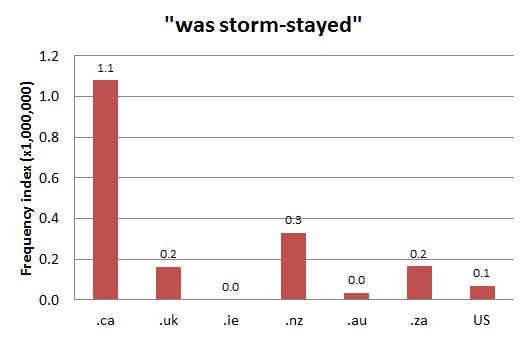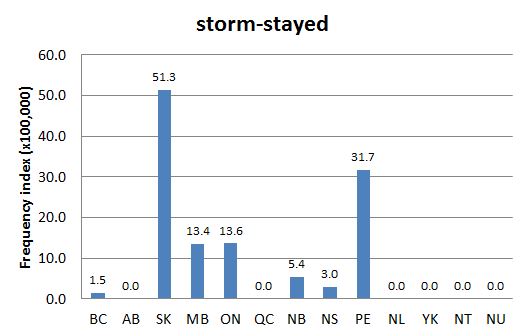DCHP-2
storm-stayed DCHP-2 (November 2016)
adj. — Outdoors
stranded due to extreme weather conditions.
Type: 2. Preservation — OED-3 lists the term as "chiefly Sc[ottish]", with a history dating back to the 15th century. In British English, the latest attestations tend to date from the early 20th century. By contrast, corrected Internet Domain Searches (see Chart 1), corrected by reading the the first 100 entries and excluding any wrong or ambiguous meanings, clearly reveal storm-stayed - most frequently today in the form of "storm stayed" (adj.) - is almost exclusively used by Canadians. In the light of term's use in the late 19th and early 20th centuries in the Commonwealth countries and Great Britain, and its decreased uses in those locations since, the Canadian frequency data gives special weight to its status as a preservation in Canadian English from Late Modern (19th century) English (see the 1896 through 2013 quotations). The term storm-stayed is most popular in the central provinces and PEI (see Chart 2).
See also COD-2, s.v. "storm-stayed", which is marked "Cdn (Maritimes & Ont.)", ITP Nelson, s.v. "stormstayed", which is marked "Maritimes", and OED-3, s.v. "storm-stayed", which is marked "Sc.".References:
Images:
Chart 1: Corrected Internet Domain Search, 31 May 2013
Chart 2: Regional Domain Search, 16 Apr. 2013

